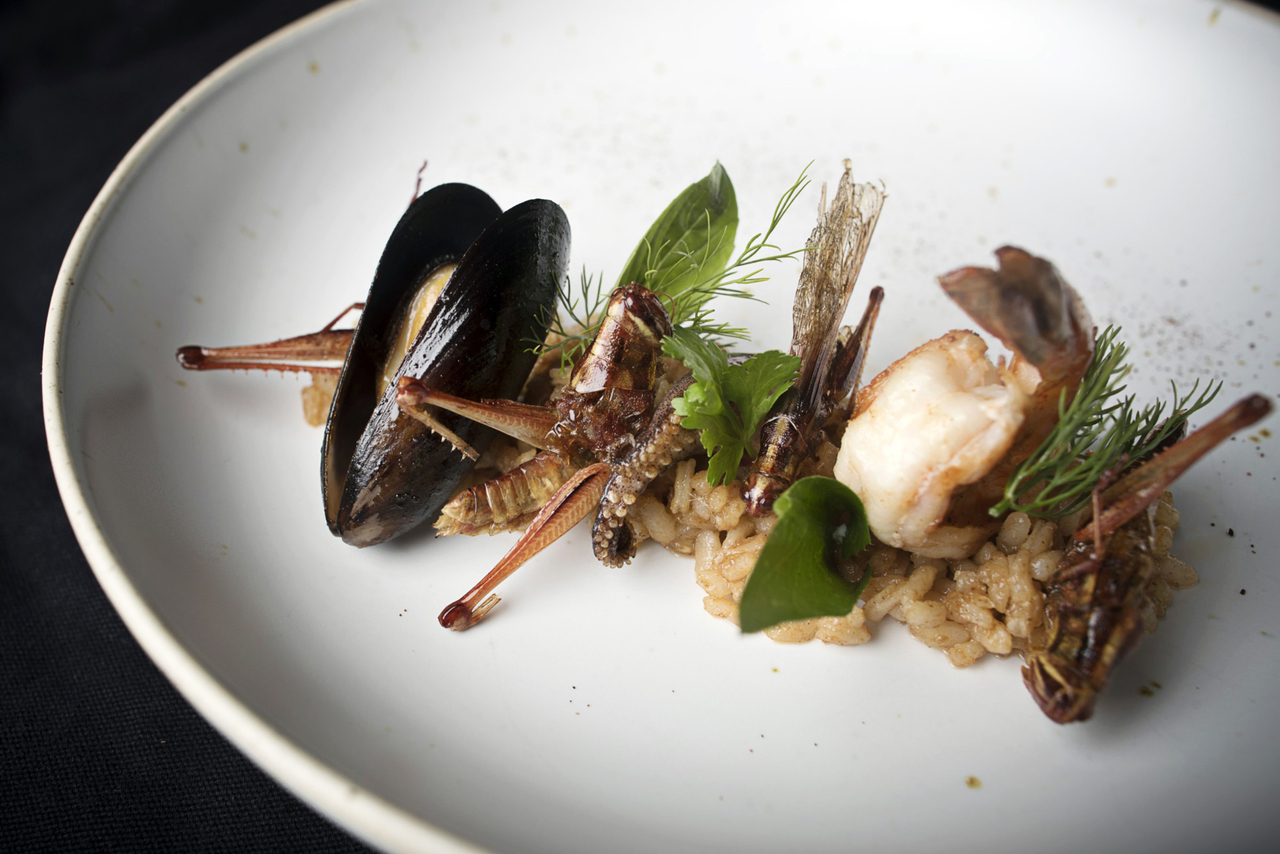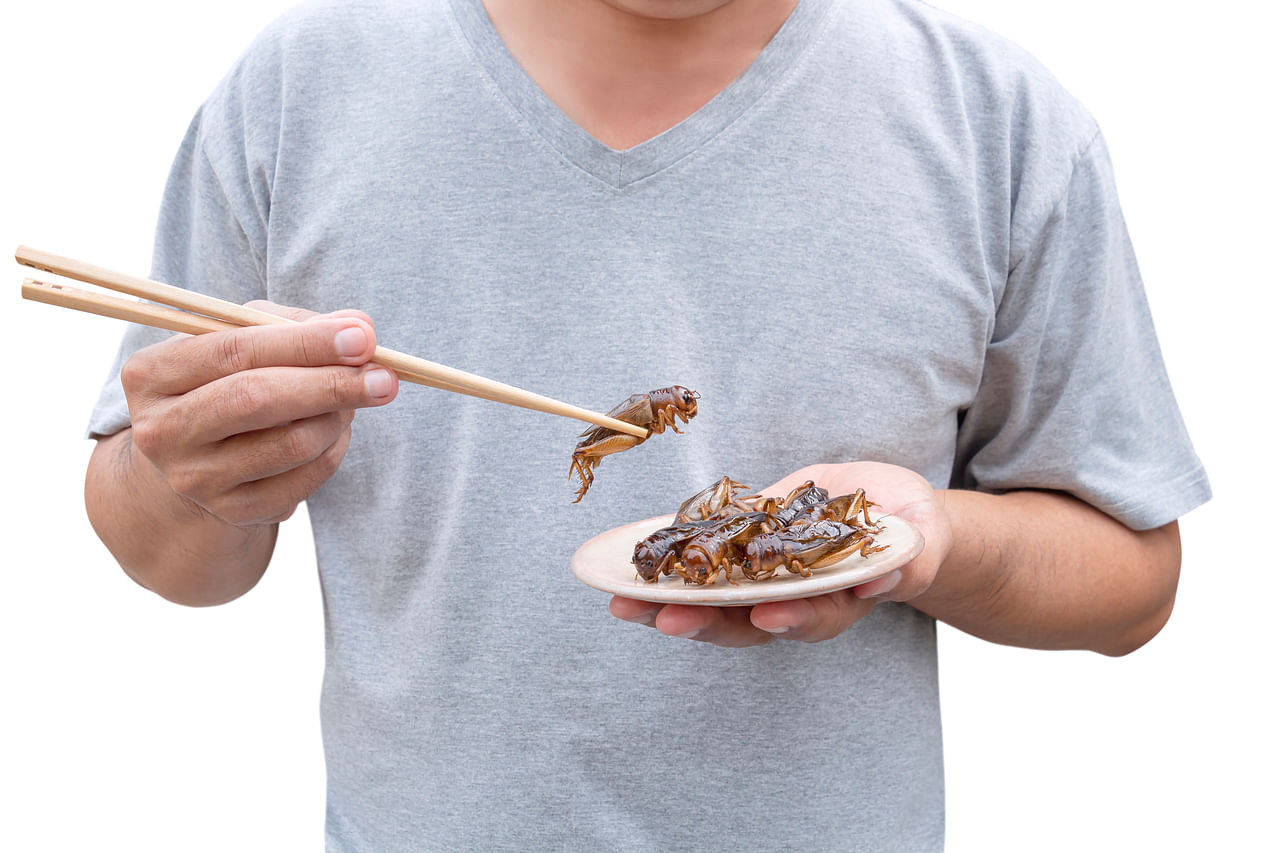Consumption of insects like crickets, beetles may soon be approved in S'pore
Sign up now: Get ST's newsletters delivered to your inbox

The agency assessed that specific species of insects with a history of human consumption can be allowed for use as food.
PHOTO: BLOOMBERG
SINGAPORE - Stir-fried grasshoppers or cookies made with cricket flour could pop up on menus here.
Singaporeans may soon be able to consume insects, with the Singapore Food Agency (SFA) seeking feedback from the food and animal feed industry to allow insects for human consumption and as livestock feed.
The changes in regulation could potentially allow people to consume species such as crickets, beetles, moths and bees. These can be consumed directly or made into items such as fried insect snacks or protein bars.
The regulation of these insects, whether imported or locally farmed, and insect products would be subject to food safety requirements and conditions.
The SFA told The Straits Times that it had taken reference from the European Union and countries such as Australia, New Zealand, South Korea and Thailand, which have allowed the consumption of certain insect species.
For instance, silkworm pupae are traditionally eaten in South Korea and crickets in Thailand.
The agency conducted a thorough scientific review and assessed that specific species of insects with a history of human consumption can be allowed for use as food, said its spokesman.
In recent years, commercial farming of insects for human consumption and as animal feed has been promoted by the United Nations' Food and Agriculture Organisation (FAO), and has received commercial interest, said SFA.
To feed the world's growing population sustainably, the FAO said edible insects have high nutrient content, require less feed and emit less greenhouse gases compared with farmed livestock.
"SFA keeps abreast of such developments in food production and innovations, and has received industry queries on the import of insects as food or animal feed," said the agency's spokesman.
It said that there is currently interest from more than 10 companies in insect food product imports or insect food farming.
To ensure safety, companies would have to show proof that the imported insects are farmed in regulated establishments and that the insect feed is not contaminated with pathogens or harmful contaminants.
Insect species without a history of human consumption would be considered novel foods, and companies would need to conduct and submit safety assessments for SFA's review.
Industry players here welcome the move.
Singapore has increasingly turned to alternative protein sources to safeguard its food security, which would make insects a potentially viable source due to their high protein content.
Asia Insect Farm Solutions' co-founder Yuvanesh T.S. said he has been waiting three to four years for approval here. SFA's move will allow him to start planning his business activities locally, he added.
The firm produces cricket powder for use in flour or cookies to enhance the protein content of these foods, with current sales to customers in the United States and Britain.

Mr Gavriel Tan, co-founder of Altimate Nutrition, a spin-off from Republic Polytechnic, said he has waited more than two years for the go-ahead from SFA. He has had to "painfully turn down" several bulk orders from large companies due to regulatory hurdles.
Mr Tan, whose company produces flavoured cricket protein bars, said he anticipates the regulatory framework to be rolled out, so that the products can soon be commercialised.
Both companies source their crickets from farms in Thailand.
SFA is currently seeking feedback from industry players and interested parties on import conditions and additional pre-licensing requirements for insects and insect products.
The public consultation started on Oct 5 and will end on Dec 4.
"As the insect industry is nascent, we will review the regulatory approach regularly based on new scientific developments," said its spokesman.
SFA also intends to allow more flexibility for the industry to use multiple types of substrates, or insect feed, in a safe manner.
Previously, companies had to seek approval for the type of substrate they could use, which was mainly restricted to homogeneous plant-based sources such as spent grain and okara.
The new approach will permit the use of any substrate that meets SFA's safety requirements, such as fish organs.
This supports the industry as it constantly explores new sources of food waste and by-products to upcycle, said SFA's spokesman.



